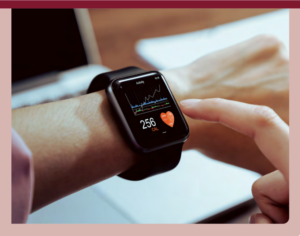How Smartphones and Watches are Revolutionizing Global Health
By Maddy Hunter, Program Associate, CCC
 Previous CCC Council Member Shwetak Patel’s research was recently featured in a ZME Science article “Can we screen the world? How smartphones and watches are revolutionizing global health (and just getting started)”.
Previous CCC Council Member Shwetak Patel’s research was recently featured in a ZME Science article “Can we screen the world? How smartphones and watches are revolutionizing global health (and just getting started)”.
A new frontier of personalized medicine has arrived with the help of smart technologies such as smartphones and watches. These technologies help doctors detect and as a result efficiently fix health conditions. Almost everyone has a smartphone, and these devices collect a lot of information about us: steps, sleep, heart rate, etc. Shwetak Patel, a researcher, is leading efforts to use smartphones and their sensors for health purposes. He believes smartphones can do a lot more in health monitoring.
Patel has an idea to use smartphones to test for diabetes globally. Usually, to test blood sugar, you use a machine called a glucometer. Patel’s idea is to use a special strip, put a blood drop on it, attach it to a smartphone, and use an app to read the blood sugar level. This method is affordable and can be used by many since lots of people own smartphones. This smartphone method might not be 100% perfect, but Patel says it’s still good. Instead of one perfect test a year, it’s better to have many smaller tests often. These regular checks can show if something’s changing or going wrong.
Potential breakthroughs of this type are becoming increasingly important with diseases like diabetes increasing worldwide. Early detection using smartphones can be a game-changer. Additionally, there are many other health conditions that could be checked using smartphones. With this technology, everyone, rich or poor, in any country, can have easy health checks using their phones. The goal is to let everyone use their phones to keep track of their health, without always needing a doctor.
While very promising, we need to make sure these smartphone health tests are accurate and safe. There are concerns about privacy and the belief that people should control their own health data. The goal is to help everyone equally, not make health differences bigger. Despite these important nuances, these technologies demonstrate that smartphones are more than just for calls and texts. They can be a big part of our healthcare in the future. The hope is to use technology to help everyone, no matter where they are or how rich they are, to be healthier.








